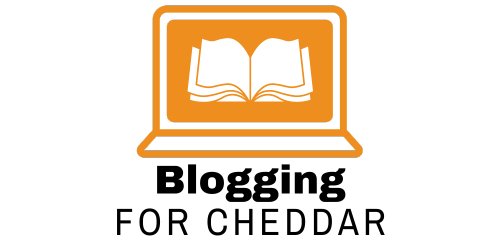If you’re a blogger looking to expand your reach and engage with your audience in a new and captivating way, then you’re in luck. In this article, we will explore the top podcasting tools that can take your blogging game to a whole new level. Whether you’re a seasoned podcaster or just getting started, these tools will help you create professional-quality podcasts that will keep your audience coming back for more. From editing software to hosting platforms, we’ve got you covered. So, grab your headphones and get ready to take your blog to the airwaves.

Recording Tools
Microphones
When it comes to recording a podcast, having a quality microphone is essential. Invest in a microphone that suits your needs and budget. There are many options available, ranging from USB microphones that are easy to use and cost-effective, to XLR microphones that offer professional-grade recording quality. Some popular microphone brands include Blue, Audio-Technica, and Rode.
Headphones
While recording your podcast, it’s important to monitor the audio for any issues or background noises. A good pair of headphones will allow you to hear the audio clearly and make adjustments as needed. Look for headphones that provide accurate sound reproduction and are comfortable to wear for extended periods. Brands such as Sony, Sennheiser, and Beyerdynamic offer a wide range of options to suit different preferences.
Pop Filters
To ensure clean and clear audio, a pop filter is a must-have tool for podcasters. Pop filters are designed to reduce plosive sounds caused by air hitting the microphone when pronouncing certain sounds, such as “p” and “b.” This helps to eliminate unwanted noise and improve the overall sound quality of your recordings. You can easily attach a pop filter onto your microphone using a simple mounting mechanism.
Audio Interfaces
If you’re using an XLR microphone, you’ll need an audio interface to connect it to your computer. An audio interface acts as a bridge between your microphone and the computer, allowing you to capture high-quality audio. Look for interfaces with features such as low-latency monitoring, multiple inputs for recording with multiple microphones, and compatibility with your computer’s operating system. Focusrite, PreSonus, and Behringer are popular brands for audio interfaces.
Editing Tools
Digital Audio Workstations
Once you’ve recorded your podcast, you’ll need a digital audio workstation (DAW) to edit and mix your audio files. A DAW provides a range of tools and features to enhance your recordings, including the ability to cut, splice, and rearrange audio clips, adjust volume levels, add effects, and combine multiple tracks. Popular DAWs include Adobe Audition, GarageBand (for Mac users), and Audacity (a free and open-source option).
Audio Editing Software
If you’re looking for a simpler and more user-friendly option for editing your podcast, audio editing software can be a great choice. These software programs are specifically designed for editing audio files and often offer intuitive interfaces and basic editing tools. Some popular audio editing software options include Audacity, Adobe Audition, and GarageBand.
Noise Reduction Tools
To ensure a clean and professional sound, it’s important to reduce any background noise or unwanted sounds that may be present in your recordings. Noise reduction tools are specifically designed to analyze and remove or reduce background noise, such as hums, hisses, and clicks. These tools can help improve the overall quality of your recordings and make them more enjoyable for your listeners. Popular noise reduction software options include iZotope RX and Adobe Audition’s noise reduction tools.

Transcription Tools
Automated Transcription Software
Transcribing your podcast episodes can be time-consuming and tedious. Automated transcription software can help simplify this process by automatically transcribing your audio files into written text. These tools use speech recognition technology to convert spoken words into text, saving you hours of manual transcribing. Some popular automated transcription software options include Otter.ai, Descript, and Temi.
Human Transcription Services
While automated transcription software can be convenient, it may not always provide accurate transcriptions, especially if there are multiple speakers or complex audio content. In such cases, it can be beneficial to hire a human transcription service. These services employ professional transcribers who listen to your podcast episodes and transcribe them accurately and efficiently. Some popular human transcription services include Rev, GoTranscript, and Scribie.
Hosting Platforms
Podcast Hosting Websites
Once your podcast episodes are ready, you’ll need a hosting platform to store and distribute your audio files. Podcast hosting websites provide the necessary infrastructure and tools for managing and delivering your podcast episodes to various podcast directories and platforms. Look for hosting platforms that offer unlimited storage and bandwidth, analytics, automatic RSS feed generation, and easy publishing options. Popular podcast hosting websites include Libsyn, Buzzsprout, and Podbean.
Content Distribution Networks
In addition to hosting your podcast on a dedicated hosting platform, you can also utilize content distribution networks (CDNs) to further expand the reach of your podcast. CDNs help optimize the delivery of your podcast episodes by replicating your files across multiple servers worldwide, reducing load times and improving the listening experience for your audience. Some popular CDNs for podcasters include Amazon CloudFront, Cloudflare, and Fastly.

Distribution Tools
RSS Feeds
An RSS (Really Simple Syndication) feed is a standardized format for delivering regularly updated content, such as podcast episodes, to subscribers. By including an RSS feed in your podcast hosting platform, you allow listeners to easily subscribe to your podcast and receive new episodes automatically. RSS feeds act as a bridge between your podcast hosting platform and podcast directories, ensuring that your episodes are distributed effectively. Most podcast hosting websites generate an RSS feed automatically for your podcast.
Podcast Directories
Podcast directories are platforms where listeners can discover, subscribe to, and listen to podcasts. Submitting your podcast to popular directories increases its visibility and helps attract a wider audience. Some well-known podcast directories include Apple Podcasts, Spotify, Google Podcasts, and Stitcher. Make sure to optimize your podcast’s metadata, such as title, description, and tags, to improve its discoverability in these directories.
Social Media Sharing
Leveraging social media platforms can be a powerful way to promote your podcast and engage with your audience. Share snippets or teaser clips of your podcast episodes on platforms like Instagram, Twitter, Facebook, and LinkedIn. Utilize relevant hashtags, engage with your followers, and encourage them to share your content. You can also create dedicated social media pages or groups for your podcast to cultivate a community and keep your listeners updated.
Analytics Tools
Podcast Analytics Platforms
To track the performance of your podcast and understand your audience better, consider using podcast analytics platforms. These tools provide insights into important metrics such as downloads, plays, listener demographics, and listening behavior. By analyzing these metrics, you can make informed decisions about your podcast’s content, marketing strategies, and potential areas for improvement. Popular podcast analytics platforms include Chartable, Podtrac, and Simplecast.
Data Tracking Tools
In addition to podcast-specific analytics platforms, you can also utilize general data tracking tools to gain a deeper understanding of your podcast’s performance. Tools like Google Analytics can help track website traffic and user engagement on your podcast’s website or landing page. You can also set up custom tracking codes and goals to measure conversions or track the effectiveness of specific promotional campaigns.

Promotion Tools
Marketing and Promotion Strategies
Promoting your podcast effectively is key to attracting and retaining an audience. Develop a comprehensive marketing and promotion strategy that includes various tactics such as creating compelling episode descriptions, utilizing search engine optimization techniques, collaborating with influencers or other podcasters, and leveraging email marketing or newsletter campaigns. Regularly engage with your audience through social media, create visually appealing graphics to share, and consider cross-promoting your podcast on guest podcasts.
Guest Collaboration Platforms
Collaborating with other podcasters or industry experts can help expand your audience and provide valuable insights and perspectives. Guest collaboration platforms connect podcast hosts with potential guests, making it easier to find and book guests for your episodes. Some popular guest collaboration platforms include MatchMaker.fm, PodMatch, and PodcastGuests.com. By featuring guests on your podcast and being a guest on other podcasts, you can tap into new audiences and build valuable relationships within the podcasting community.
Monetization Tools
Advertising Networks
If you’re looking to monetize your podcast, consider joining advertising networks that connect podcasters with advertisers. These networks typically handle the process of finding advertisers, negotiating ad placements, and ensuring that ads are seamlessly integrated into your podcast episodes. Some well-known podcast advertising networks include Midroll, AdvertiseCast, and Podcorn. Depending on the size and reach of your podcast, you may be able to earn revenue through sponsorships or advertisements.
Sponsorship Platforms
Sponsorship platforms provide a platform for podcasters to connect with potential sponsors directly. These platforms often offer resources and tools to help podcasters create sponsorship proposals, negotiate deals, and manage sponsor relationships. Some popular sponsorship platforms for podcasters include Podcorn, MatchMaker.fm, and PodSquad. By partnering with relevant sponsors, you can generate income through sponsored episodes or ongoing partnerships.
Donation Services
If you have a dedicated and supportive audience, you can consider accepting donations or contributions to support your podcast. Donation services provide a convenient way for listeners to contribute financially, either through one-time donations or recurring payments. Platforms such as Patreon and Ko-fi enable podcasters to offer exclusive content or perks to donors as a way of showing appreciation. This can be a viable monetization option, especially for niche or community-focused podcasts.

Interview Tools
Remote Recording Tools
Conducting interviews with remote guests is a common practice in podcasting. Remote recording tools enable you to record high-quality audio from multiple participants, regardless of their geographic location. These tools often feature features such as automatic audio sync, separate audio tracks for each participant, and easy post-production integration. Popular remote recording tools include Zencastr, SquadCast, and Cleanfeed.
Booking and Scheduling Platforms
Managing guest bookings and scheduling can be a time-consuming task. Booking and scheduling platforms streamline this process by providing centralized calendars, customizable booking pages, automatic email reminders, and integrations with popular calendar apps. Some popular booking and scheduling platforms for podcasters include Calendly, Acuity Scheduling, and YouCanBook.me. By using these platforms, you can simplify the guest booking process and ensure smooth communication with your guests.
Graphic Design Tools
Cover Art Creators
Creating visually appealing cover art is essential for attracting potential listeners to your podcast. Cover art creators allow you to design professional-looking cover art without the need for graphic design skills. These tools often provide pre-designed templates, customizable layouts, and access to a wide range of fonts and graphics. Some popular cover art creators include Canva, Adobe Spark, and Snappa.
Episode Thumbnail Designers
In addition to cover art, creating eye-catching episode thumbnails can help grab the attention of your audience. Episode thumbnail designers offer templates and tools specifically tailored for designing episode artwork. These tools often allow you to customize text, add images or graphics, and export your designs in the appropriate dimensions for various podcast platforms. Thumbnail designers like Stencil, Snappa, and Adobe Spark can help you create professional-looking episode thumbnails easily.
With these top podcasting tools at your disposal, you can take your podcasting game to the next level. From recording and editing tools to transcription and distribution platforms, each tool serves a unique purpose in enhancing your podcasting journey. Explore and experiment with different tools to find the ones that best align with your needs and goals. Happy podcasting!

